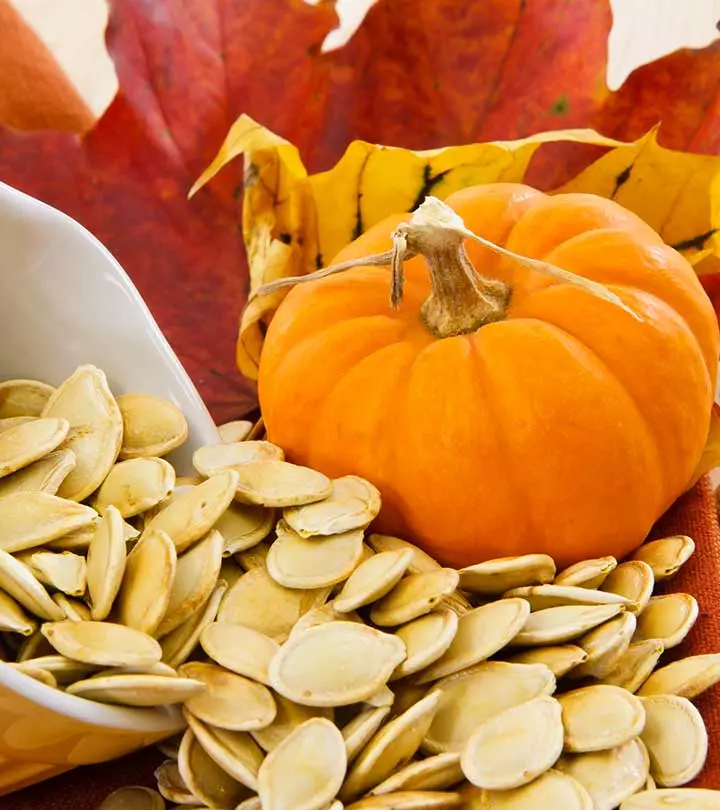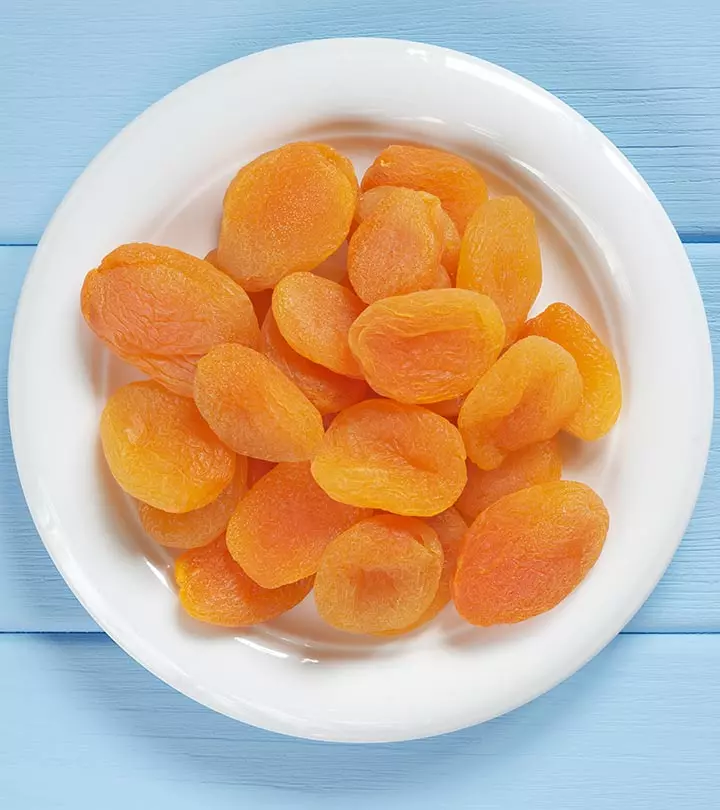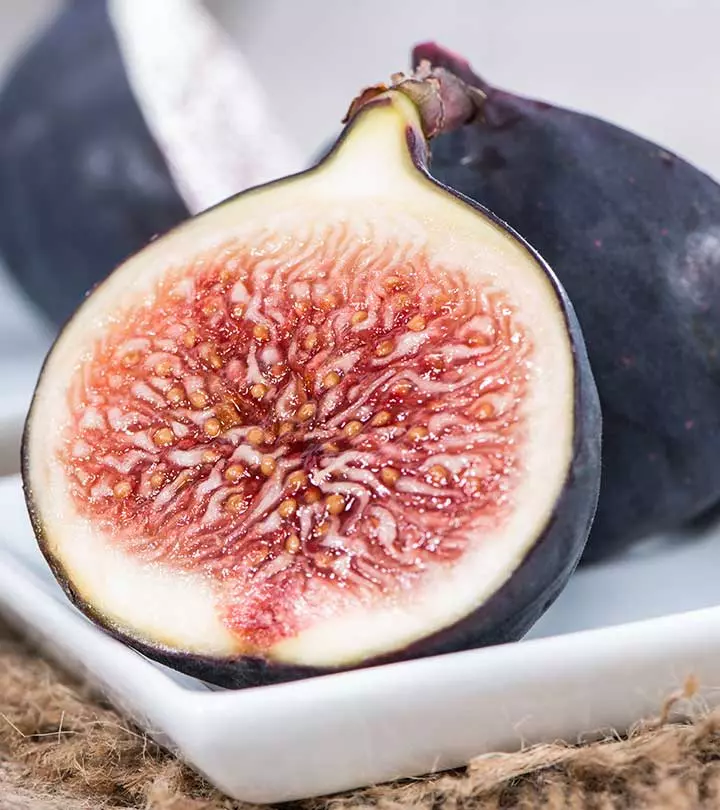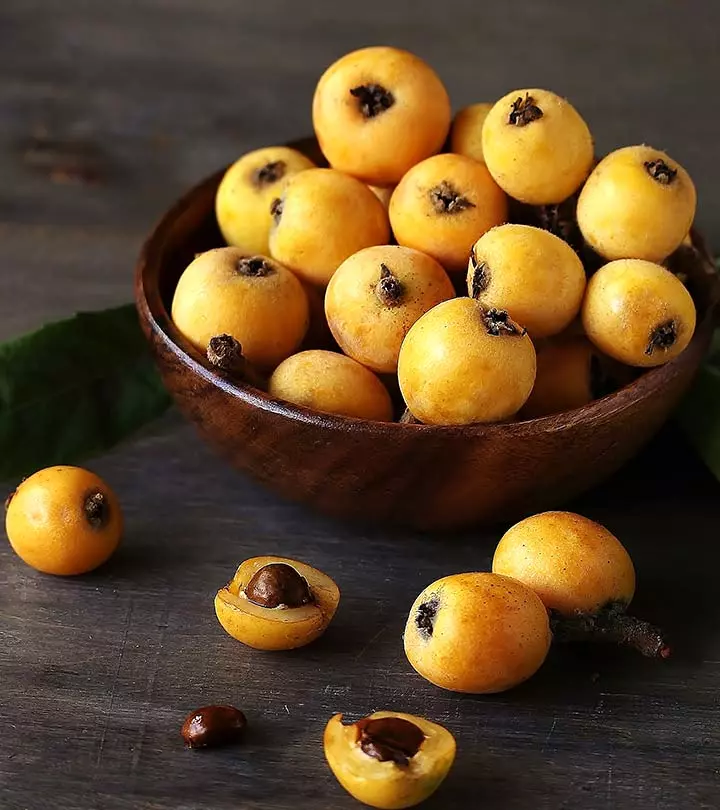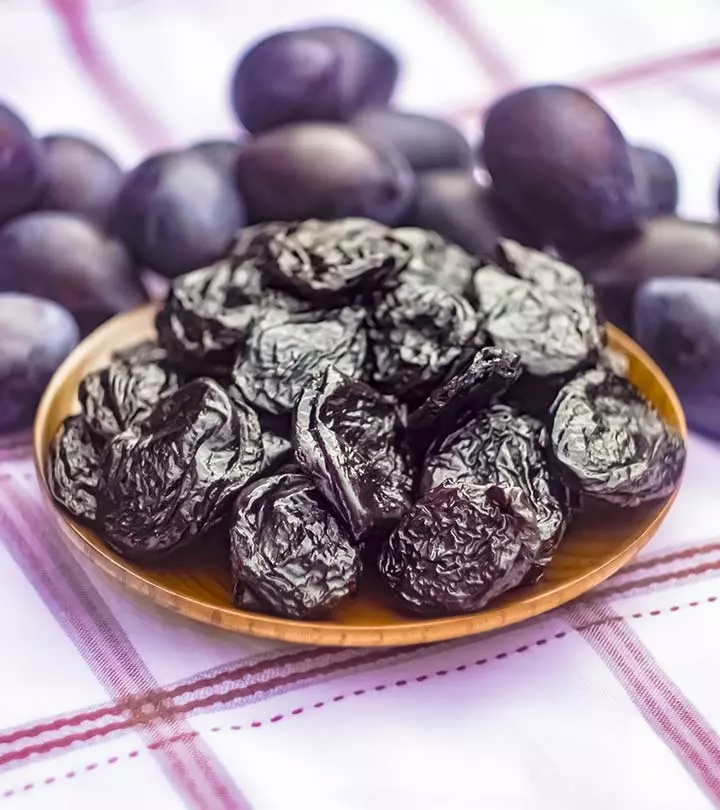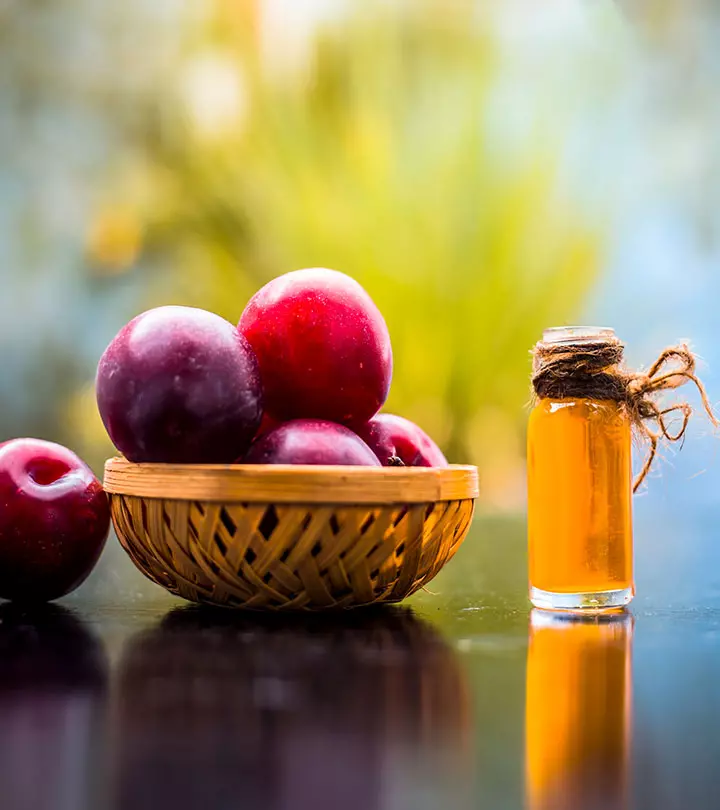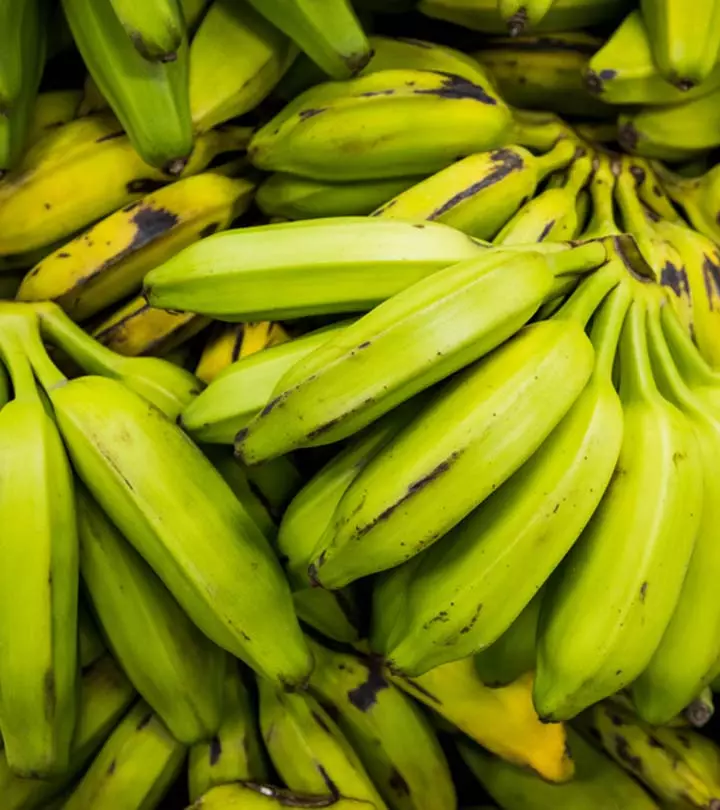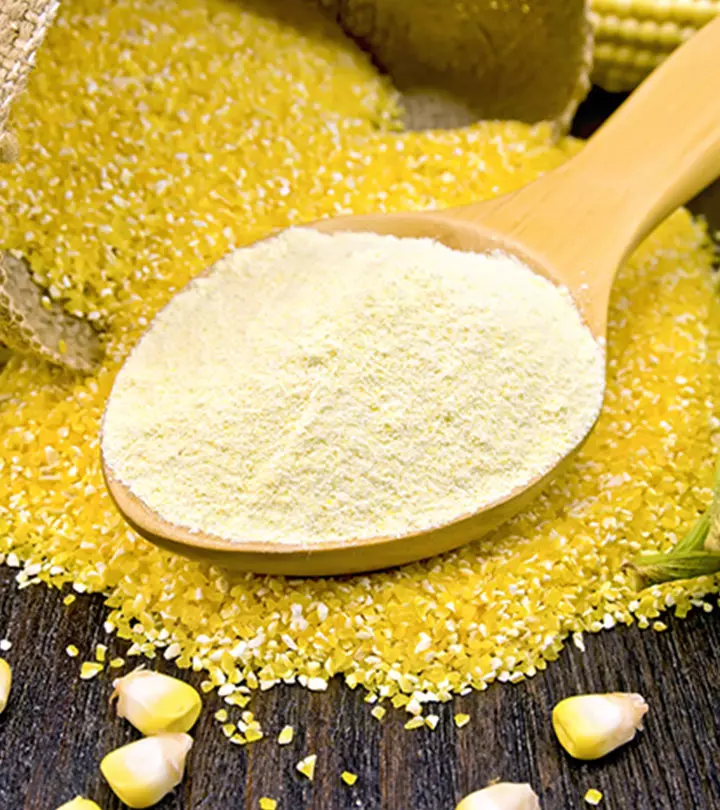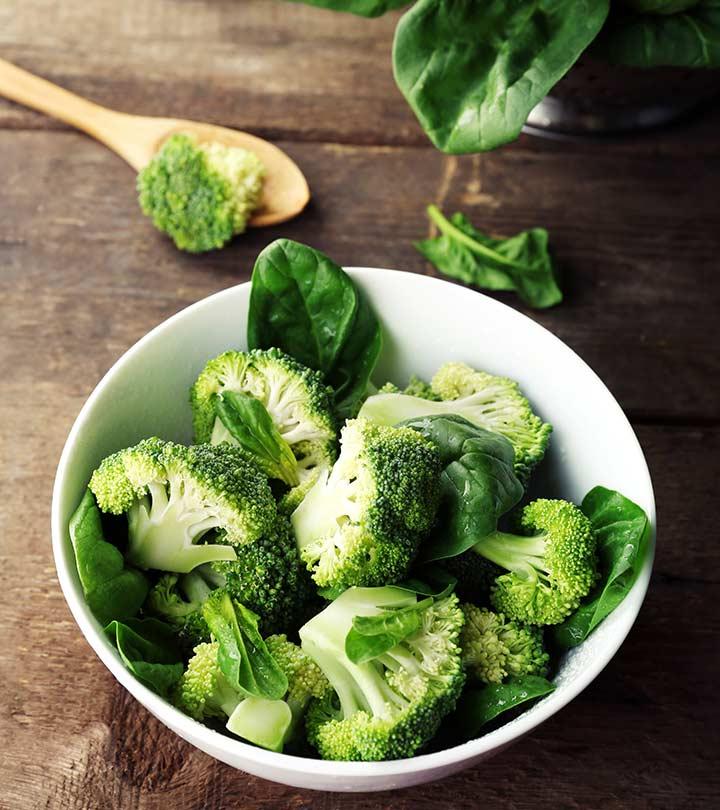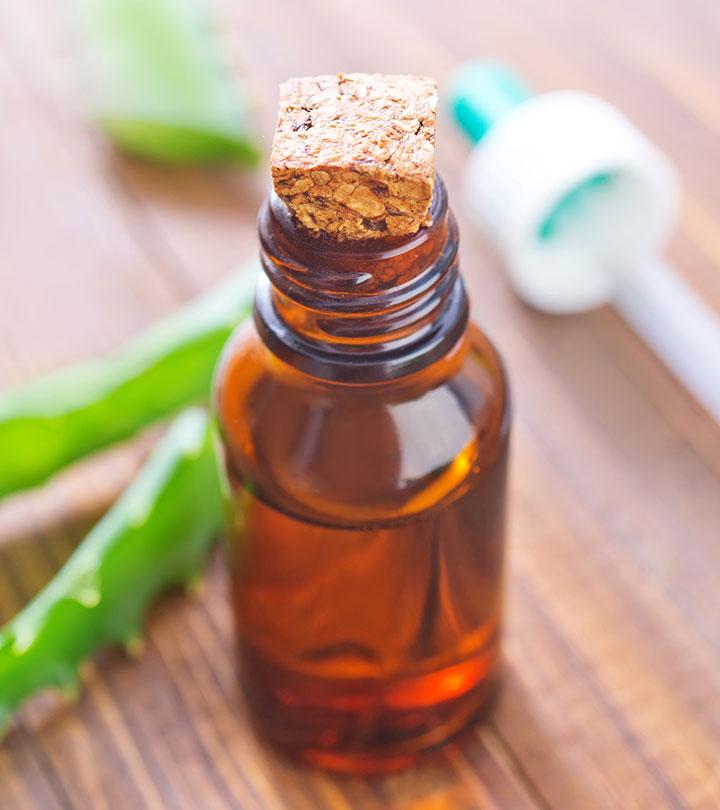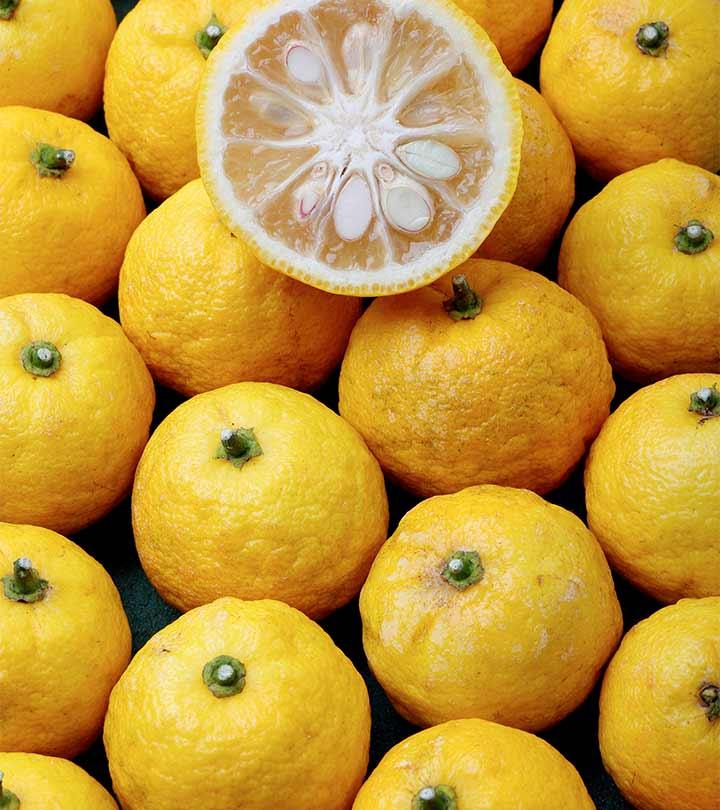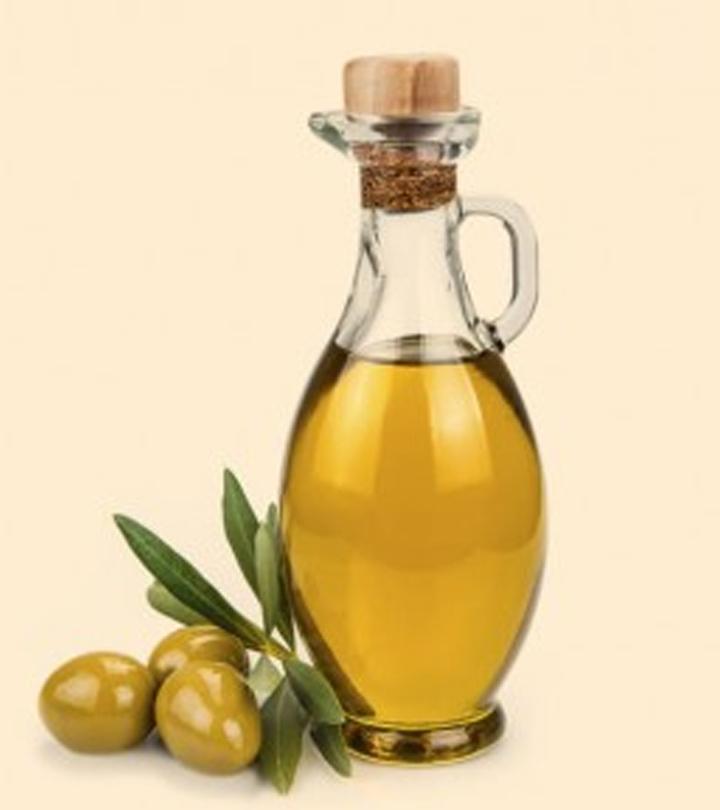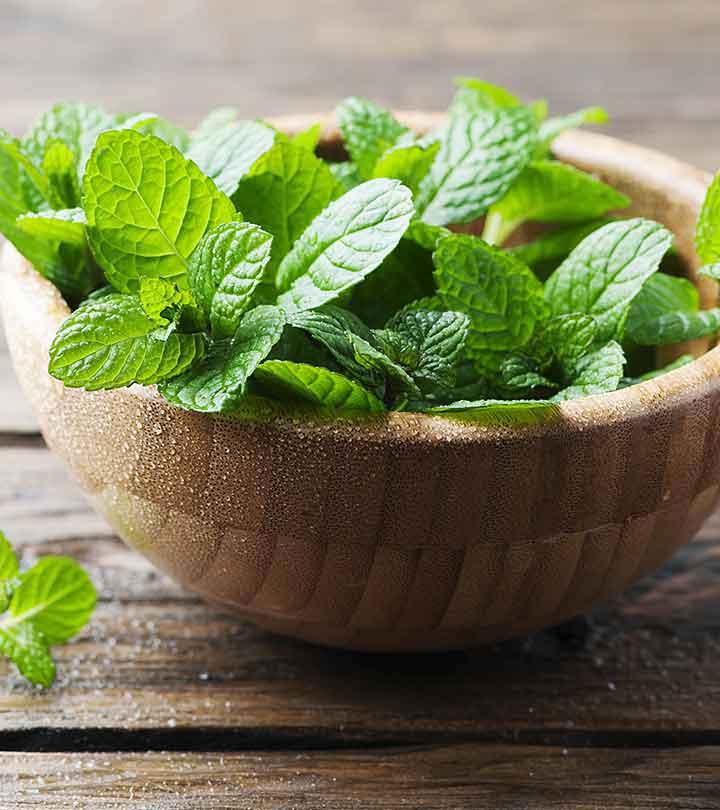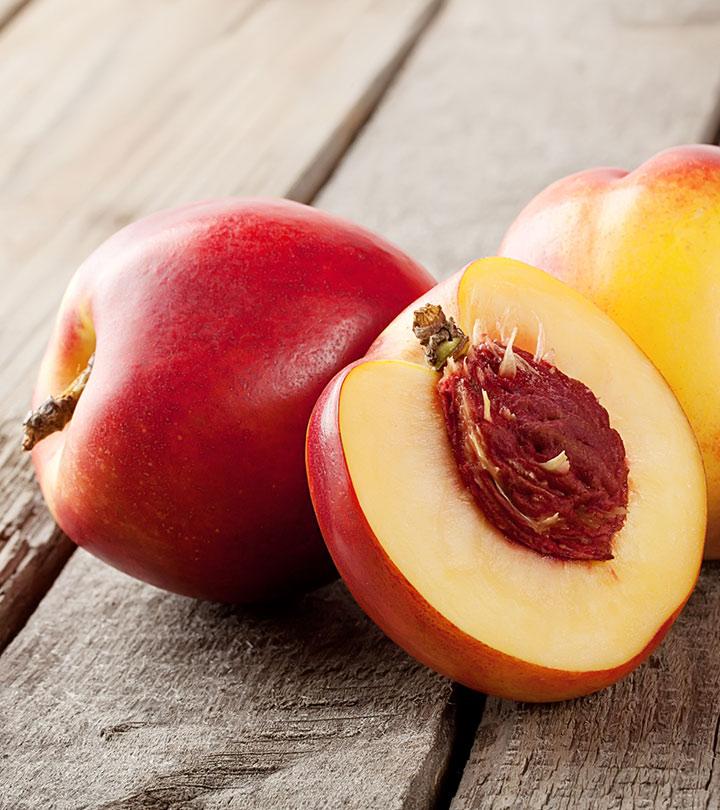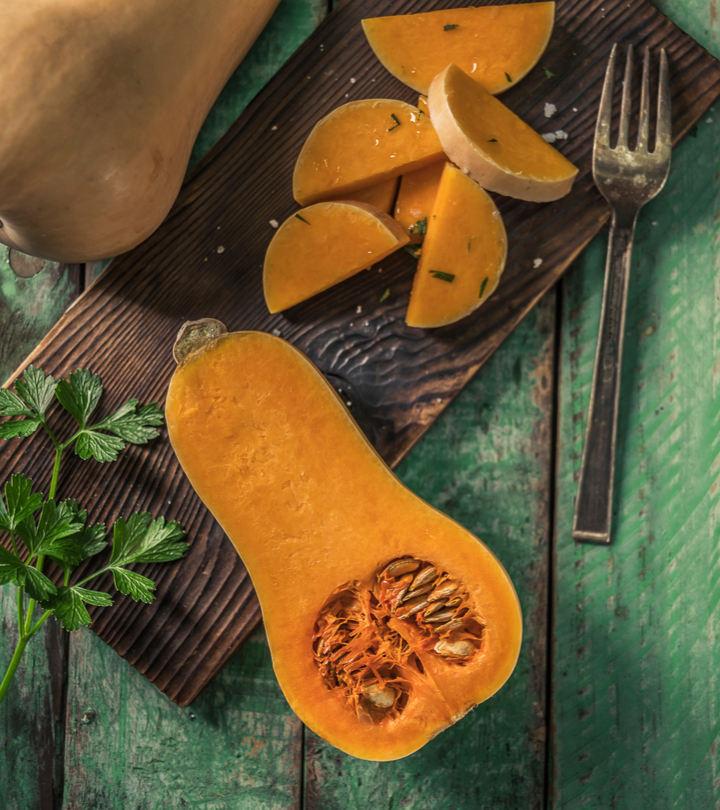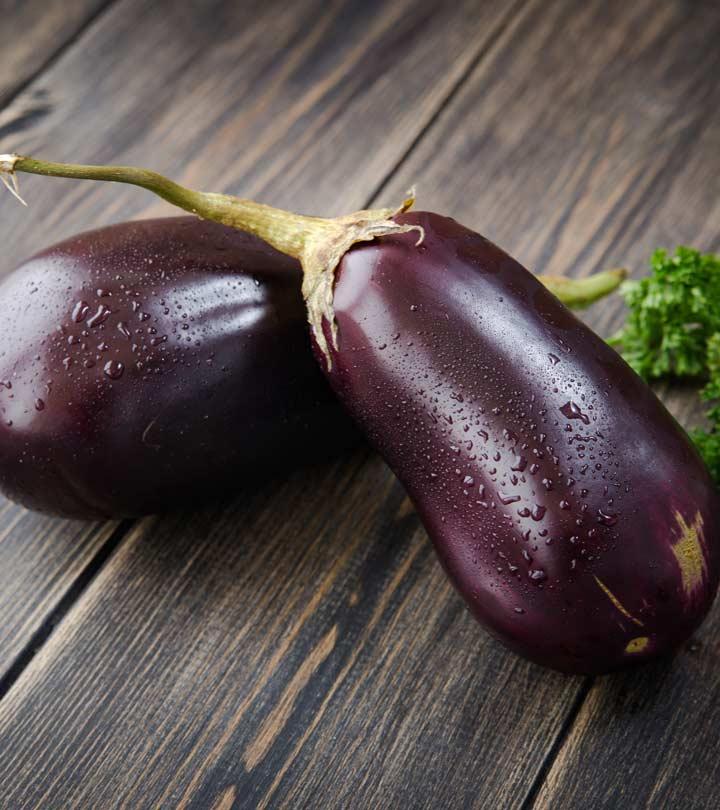9 Health Benefits Of Plums, How To Use Them, & Side Effects
Enjoy the goodness of these nutrient-dense and delicious fruits with therapeutic properties.
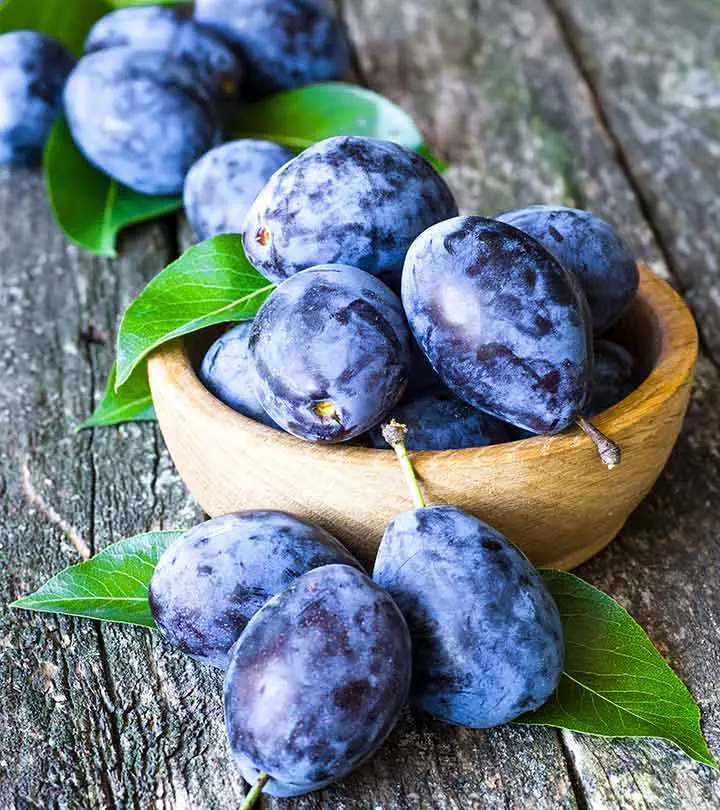
Image: Shutterstock
Plums are bursting with nutrients, dietary fibers, and antioxidants. The health benefits of plums are mainly due to their rich nutrient profile. They can boost memory and fight inflammation as they contain phenols like anthocyanins. Plums have been proven to treat constipation, help manage diabetes, and prevent cardiovascular disease. This article discusses the benefits of plums, their nutritional profile, how to use them, and their risks. Take a look.
 Know Your Ingredient: Plums
Know Your Ingredient: PlumsWhat Is It?
A type of stone fruit belonging to the Rosaceae family.
What Are Its Benefits?
Plums may help relieve constipation and improve gastrointestinal function. It can also aid diabetes management, reduce cancer risk, and improve heart, bone, and brain health.
Who Can Consume It?
Plums can be consumed by all, even during pregnancy and breastfeeding.
How Often?
3 to 6 plums a day.
Caution
Excess consumption may increase the risk of kidney stones, bloating, and constipation.
In This Article
How Do Plums Work?
Plums possess antioxidant, anti-inflammatory, and memory-boosting properties. They contain phenols, particularly anthocyanins, which are antioxidants (1).
Julie Upton, RD, says, “The phytonutrients in plums may have antioxidant activity and this can help to keep blood vessels healthy. Since many types of dementia are linked to the health of the blood vessels in the brain, plums may be a healthy addition to one’s diet to reduce the risk of several chronic conditions.”
Intake of plums is associated with improved cognition, bone health, and heart health. They also have a low glycemic index, so eating them is unlikely to cause spikes in your blood sugar levels.
They are available from May through October – and in several varieties. Some of those include black plums, greengage plums, red plums, mirabelle plums, plucots, yellow plums, pluots, and umeboshi plums (a staple in Japanese cuisine).
 Trivia
TriviaAll these varieties offer similar benefits. These benefits, as you will see, can change your life for the better.
How Can Plums Benefit You?
1. Plums Help Treat Constipation
Plums are rich in fiber and help treat constipation (2). The phenolic compounds in plums also offer laxative effects.
Prunes (the dried versions of plums) also improve stool frequency and consistency, thereby boosting gastrointestinal function (3). Regular intake of prunes can improve stool consistency better than psyllium (a plantain, the seeds of which are used as a laxative) (4).
Specific carotenoids and polyphenols in plums may also stimulate gastrointestinal digestion (5). However, studies stress the need for further research in this aspect.
2. Aid Diabetes Treatment
The various bioactive compounds in plums are at play here. These are sorbitol, quinic acid, chlorogenic acids, vitamin K1, copper, potassium, and boron. These nutrients work synergistically and help cut the risk of diabetes (6).
Plums also increase serum levels of adiponectin, a hormone that regulates blood sugar levels (7). The fiber in plums can also help – it slows down the rate at which your body absorbs carbs and may help in weight management.
Plums can also increase insulin sensitivity – thereby aiding diabetes treatment (8). The phenolic compounds in plums can be attributed to these effects.
Snacking on dried plums can also increase satiety and reduce the risk of diabetes and other serious diseases. Just be careful to limit the serving to 4-5 prunes as they are sugar-dense as well. It is best to complement with some protein, such as a small handful of nuts.
3. May Help Prevent Cancer
A study found that the fiber and polyphenols in dried plums could help alter colorectal cancer risk factors (9).
In other lab tests, plum extracts managed to kill even the most aggressive forms of breast cancer cells. More interestingly, the normal healthy cells remained unaffected (10). This effect was linked to two compounds in plums – the chlorogenic and neochlorogenic acids. Though these acids are quite common in fruits, plums seem to contain them in surprisingly high levels.
4. Can Protect The Heart
Prunes (or plums) can control hypertension, thereby protecting the heart. In a study, individuals who consumed prune juice or prunes had lower blood pressure levels. These individuals also had lower levels of bad cholesterol and total cholesterol (11).
Another study found that regular intake of prunes could lower cholesterol levels. In the study, men diagnosed with high cholesterol were given 12 prunes to eat over eight weeks. Post the trial, they saw an improvement in their blood cholesterol levels (12).
Eating dried plums can also slow down the development of atherosclerosisi A buildup of plaque in and along the artery walls due to cholesterol, fats, and other substances. (13).
5. Promote Bone Health
Prune intake is associated with a reduced risk of osteoporosisi A systemic skeletal disorder that results in the reduction of bone density, increasing the risk of fractures. . Plum is considered the most effective fruit for preventing and reversing bone loss (14).
Dried plums also increase bone mass density. Some research speculates that this effect could be due to the presence of rutin (a bioactive compound) in plums (15). But more research is needed – as to why exactly plums promote bone health.
Another way plum benefits your bones is through its vitamin K content. This nutrient helps improve calcium balance in the body, thereby boosting bone health. Dried plums have a higher vitamin K content and can be far more beneficial in this regard (16).
Dried plums can also serve as an ideal food for preventing bone loss in postmenopausal women (17). Plums also contain certain phytonutrients that fight oxidative stress. Oxidative stress can make the bones porous and easily prone to breakage, often contributing to osteoporosis (18).
6. Promote Cognitive Health
Studies show that the polyphenols in Oriental plums can improve cognitive function and reduce brain cholesterol levels (19). This can also mean a reduced risk of neurodegenerative diseasei Degenerative nerve diseases can affect a variety of bodily processes, like balance, mobility, speech, breathing, and heart function. .
In rat studies, consumption of plum juice proved to be effective in mitigating cognitive deficits related to aging (20). Similar effects were not observed with dried plum powder, though.
The chlorogenic acid in plums (and prunes) can also help reduce anxiety (21).
7. May Boost Immunity
A study done on poultry showed that plums might have properties that can help enhance the immune system. Chickens fed with plums in their diets showed greater recovery from a parasitic disease (22).
Similar results in humans are yet to be observed, and research is ongoing.
8. May Aid Weight Loss
Julie says, “Like any type of fruit, plums can aid weight in losing weight and keeping it off. This is because fruit is generally low in calories and contains filling fiber. It also carries a lot of water and that helps to keep you satisfied as well. One plum has just 30 calories, about a gram of fiber, and provides several essential nutrients like vitamins C and A, potassium, and copper. They are also rich in beneficial phytonutrients that may have health-promoting qualities.”
Plums have a high polyphenol content that may help prevent weight gain and other obesity-induced metabolic and physiological disorders (23). They may help regulate energy in people with obesity and have insulin-like and heart-protective effects. Moreover, plum is a low-calorie fruit that can be a good option to include in your weight-loss diet.
9. May Aid Fetal Development
A study showed that the oral administration of plum extract in pregnant mice resulted in increased bone development and formation in the fetus (24). However, more research is required to verify that it has the same effect on humans.
More benefits of plums are yet to be discovered. But what we have learned until now is enough testimony to make plums a regular part of our diet.
If you aren’t convinced, take a look at the nutritional profile of plums.
What Is The Nutrition Profile Of Plums?
| Calorie Information | ||
|---|---|---|
| Amounts Per Selected Serving | %DV | |
| Calories | 75.9(318 kJ) | 4% |
| From Carbohydrate | 68.1(285 kJ) | |
| From Fat | 3.9(16.3 kJ) | |
| From Protein | 3.9(16.3 kJ) | |
| From Alcohol | 0.0(0.0 kJ) | |
| Carbohydrates | ||
| Amounts Per Selected Serving | %DV | |
| Total Carbohydrate | 18.8 g | 6% |
| Dietary Fiber | 2.3 g | 9% |
| Starch | 0.0 g | |
| Sugars | 16.4 g | |
| Vitamins | ||
| Amounts Per Selected Serving | %DV | |
| Vitamin A | 569 IU | 11% |
| Vitamin C | 15.7 mg | 26% |
| Vitamin D | ~ | ~ |
| Vitamin E (Alpha Tocopherol) | 0.4 mg | 2% |
| Vitamin K | 10.6 mcg | 13% |
| Thiamin | 0.0 mg | 3% |
| Riboflavin | 0.0mg | 3% |
| Niacin | 0.7mg | 3% |
| Vitamin B6 | 0.0mg | 2% |
| Folate | 8.3 mcg | 2% |
| Vitamin B12 | 0.0mcg | 0% |
| Pantothenic Acid | 0.2 mg | 2% |
| Choline | 3.1 mg | |
| Betaine | ~ | |
| Minerals | ||
| Amounts Per Selected Serving | %DV | |
| Calcium | 9.9 mg | 1% |
| Iron | 0.3 mg | 2% |
| Magnesium | 11.6 mg | 3% |
| Phosphorus | 26.4 mg | 3% |
| Potassium | 259 mg | 7% |
| Sodium | 0.0 mg | 0% |
| Zinc | 0.2 mg | 1% |
| Copper | 0.1 mg | 5% |
| Manganese | 0.1 mg | 4% |
| Selenium | 0.0 mcg | 0% |
| Fluoride | 3.3 mcg | |
Source: USDA, Plums, raw
One cup of plums (165 grams) contains about 76 calories. It also contains:
- 2.3 grams of fiber
- 15.7 milligrams of vitamin C (26% of the daily value)
- 10.6 micrograms of vitamin K (13% of the DV)
- 569 IU of vitamin A (11% of the DV)
- 259 milligrams of potassium (7% of the DV)
 Fun Fact
Fun FactPlums are incredibly nutritious. The simplest way to eat them is as they are. But if that sounds boring, you may want to check the next section.
How To Use Plums
Look for plums that are slightly firm, juicy, sweet, and somewhat yield to pressure. Don’t go for those that are already soft or bruised.
You can even add plums to pies, ice pops, oatmeal, salads, yogurt, smoothies, and pudding. You can add dried plums (or prunes) to cakes, ice cream, salads, chicken or pork dishes, and dressings.
Rinku, a food blogger, shared how she tweaked a plum compote recipe to make it her own in her blog post. She said, “Mixing up cardamom instead of the suggested cinnamon gives this compote a somewhat earthy fragrance (i).”
She further goes on to add the different ways in which she enjoyed this delicious compote. She said, “I think it is perfect any and all times of the day, spooned over toast or pancakes for breakfast and with yogurt or cake as a dessert. I have been enjoying this with yogurt, pecans and a little extra honey.”
 Trivia
TriviaSounds delicious, right? But does this mean anyone can eat plums? Probably not.
Do Plums Have Side Effects?
Though not many, plums do have side effects.
- Kidney Stones
Plums reduce urinary pH (25). This may potentially cause kidney stones. Hence, people with a history of kidney stones must avoid plums. However, we need more research on this, so consult your doctor.
- Other Potential Effects
The sorbitol in plums may cause bloating (26). The fiber they contain, if taken in excess, may also cause constipation.
Infographic: DIY Fresh Plum Face Mask
Plums are packed with nutrients that can help improve overall skin health and offer healthy, glowing skin. The extracts of plums are used in many skin care products for their goodness. In addition, the phytochemical and polyphenol compounds in these fruits offer many skin protective and nourishing properties. Click on the infographic below to learn more about how to prepare a DIY fresh plum face mask and reap its benefits. Illustration: StyleCraze Design Team
Plums are delicious, nutrient-dense fruits offering dietary fiber, vitamins, minerals, and other potent antioxidants. Plum fruit benefits include improved digestive, heart, and bone health. They help boost cognitive function and immunity as well. In addition, their anti-inflammatory properties and fiber content help in cancer prevention. However, excess consumption may cause constipation and increase the risk of kidney stones in some people. If you experience any side effects, limit your consumption and seek medical advice.
Frequently Asked Questions
Can plums provide relief from skin conditions like eczema or acne?
Krutika Nanavati, RDN, says, “Although certain vitamins and antioxidants in plums, like vitamins C and A, contribute to skin health, no conclusive evidence shows plums directly improve eczema or acne. The anti-inflammatory properties of some plum compounds might theoretically offer mild benefits, but further research is needed. While dietary factors can influence skin health, addressing existing conditions like eczema or acne should primarily focus on prescribed treatments with dermatological consultation.”
Do plums help with chronic pain?
Krutika says, “No substantial scientific evidence suggests plums directly alleviate chronic pain. Some plum compounds possess anti-inflammatory properties, which could theoretically contribute to pain management, but clinical studies are lacking. While research on the pain-relieving properties of plums is ongoing, they should not be considered a substitute for established pain management strategies prescribed by healthcare professionals.”
How to store plums?
You can store plums in the refrigerator. If they are not yet ripe, you can keep them in a paper bag at room temperature until they ripen.
How are plums different from prunes and peaches?
While prunes are just dried plums, peaches are different fruits. All three belong to the same genus, though.
How long do plums last?
Plums last for 3 to 5 days in the refrigerator if fully ripe.
How to tell if plums have gone bad?
If plums develop dark spots, become too soft, and begin to ooze – they are spoiled. Discard such plums. In some cases, plums may also develop mold and an off-putting smell – discard them.
How many plums should I eat a day?
Adults can consume up to 4-6 plums a day, while children can eat 2-3 plums in a day. However, consuming too many plums in a single sitting should be avoided as it can lead to gastrointestinal problems or diarrhea (27).
Can I eat plum at night?
It is not recommended to eat fruits at night as it can hinder your sleep, cause a spike in sugar levels, and lead to problems in digestion.
Is plum hot or cold for the body?
Plums come under the category of warm fruits and are said to be beneficial for treating cough and cold.
Is plum good for fatty liver?
Yes, plums are made of soluble fiber that can aid in reducing cholesterol levels in the body and also control cholesterol in a fatty liver (12).
Can I eat plum on an empty stomach?
Yes, plums can be consumed on an empty stomach. Only citrus fruits should be avoided before breakfast as they lead to acidity.
Are plums good for your hair?
Yes, there are numerous beautifying benefits of plums. It can aid in cleansing your scalp, stimulating follicles, targeting dandruff, and promoting hair growth due to its rich vitamin C content. (28).
Can plum fruit skin be eaten?
Yes, plum fruit skin is edible and can be consumed after washing.
Key Takeaways
- Plums help relieve constipation and help bulk up stools with their abundant dietary fiber.
- They help boost levels of adiponectin, a hormone that plays a major role in regulating blood sugar levels.
- Studies have shown that intaking plums may help with keeping cholesterol levels under control.
- However, avoid over-consumption of plums, as they may induce forming of kidney stones.

Image: Stable Diffusion/StyleCraze Design Team
Personal Experience: Source
StyleCraze's articles are interwoven with authentic personal narratives that provide depth and resonance to our content. Below are the sources of the personal accounts referenced in this article.
i. Instant Pot Plum and Cardamom Compotehttps://spicechronicles.com/instant-pot-plum-and-cardamom-compote/#sthash.NM68PIDq.dpbs
References
Articles on StyleCraze are backed by verified information from peer-reviewed and academic research papers, reputed organizations, research institutions, and medical associations to ensure accuracy and relevance. Read our editorial policy to learn more.
- “A systematic review on the health effects of…” Phytotherapy Research, US National Library of Medicine.
- “Diets for constipation” Pediatric Gastroenterology, Hepatology & Nutrition, US National Library of Medicine.
- “Systematic review: the effect of prunes…” Alimentary Pharmacology & Therapeutics, US National Library of Medicine.
- “Randomised clinical trial…” Alimentary Pharmacology & Therapeutics, US National Library of Medicine.
- “Inflammation related responses of intestinal…” Molecular Nutrition & Food Research, US National Library of Medicine.
- “Dried plums and their products…” Critical Reviews in Food Science and Nutrition, US National Library of Medicine.
- “Functional foods-based diet as a novel dietary…” World Journal of Diabetes, US National Library of Medicine.
- “Anti-hyperglycemic effects of plum…” Biomedical Research, US National Library of Medicine.
- “Effect of dried plums on colon cancer risk…” Nutrition and Cancer, US National Library of Medicine.
- “Identifying Peach and Plum…” American Chemical Society.
- “Use of prunes as a control of…” Journal of Ayub Medical College, US National Library of Medicine.
- “Consumption of prunes as a source…” The American Journal of Clinical Nutrition, US National Library of Medicine.
- “Dried plums (prunes) reduce…” British Journal of Nutrition, US National Library of Medicine.
- “Viewpoint: dried plum, an emerging functional food…” Ageing Research Reviews, US National Library of Medicine.
- “Flavonoid intake and bone health” Journal of Nutrition in Gerontology and Geriatrics, US National Library of Medicine.
- “Dried plums, prunes and bone health” Nutrients, US National Library of Medicine.
- “Bone-protective effects of dried plum…” Nutrients, US National Library of Medicine.
- “Phytonutrients for bone health during ageing” British Journal of Clinical Pharmacology, US National Library of Medicine.
- “A high-cholesterol diet enriched with…” The British Journal of Nutrition, US National Library of Medicine.
- “Plum juice, and not dried plum powder…” Nutrition, US National Library of Medicine.
- “Medicinal effect of nutraceutical fruits…” Scientifica, US National Library of Medicine.
- “Immunomodulatory properties of…” Comparative Immunology, Microbiology and Infectious Diseases, US National Library of Medicine.
- “Consumption of polyphenol-rich peach and plum juice prevents risk factors for obesity-related metabolic disorders and cardiovascular disease in Zucker rats” Journal Of Nutritional Biochemistry, ScienceDirect..
- “Effects of Plum Extract on Skeletal System of Fetal and Newborn Mice” Principles and Practice, US National Library of Medicine.
- “Nutritional management of kidney stones” Digital Access to Scholarship at Harvard.
- “Relief from intestinal gas” Harvard Health Publishing, Harvard Medical School.
- “Fruit and Vegetable Intake: Benefits and Progress of Nutrition Education” Iranian Journal of Public Health, ResearchGate.
- “l-Ascorbic acid 2-phosphate promotes elongation of hair shafts via the secretion of insulin-like growth factor-1 from dermal papilla cells through phosphatidylinositol 3-kinase”” The British Journal Of Dermatology, US National Library of Medicine.
Read full bio of Julie Freeman
- Julie Upton, MS, RD, is a registered dietitian and a certified CrossFit instructor with over a decade of experience. She is an alumnus of Boston University and specializes in weight loss, physical fitness, plant-based and vegetarian nutrition, cardiovascular nutrition, and healthy aging. She has authored thousands of articles for national newspapers, magazines, and online media platforms. Additionally, she frequently appears as a guest on both local and national broadcast news programs.
 Julie Upton, MS, RD, is a registered dietitian and a certified CrossFit instructor with over a decade of experience. She is an alumnus of Boston University and specializes in weight loss, physical fitness, plant-based and vegetarian nutrition, cardiovascular nutrition, and healthy aging. She has authored thousands of articles for national newspapers, magazines, and online media platforms. Additionally, she frequently appears as a guest on both local and national broadcast news programs.
Julie Upton, MS, RD, is a registered dietitian and a certified CrossFit instructor with over a decade of experience. She is an alumnus of Boston University and specializes in weight loss, physical fitness, plant-based and vegetarian nutrition, cardiovascular nutrition, and healthy aging. She has authored thousands of articles for national newspapers, magazines, and online media platforms. Additionally, she frequently appears as a guest on both local and national broadcast news programs.
Read full bio of Arshiya Syeda
Read full bio of Sindhu Koganti









